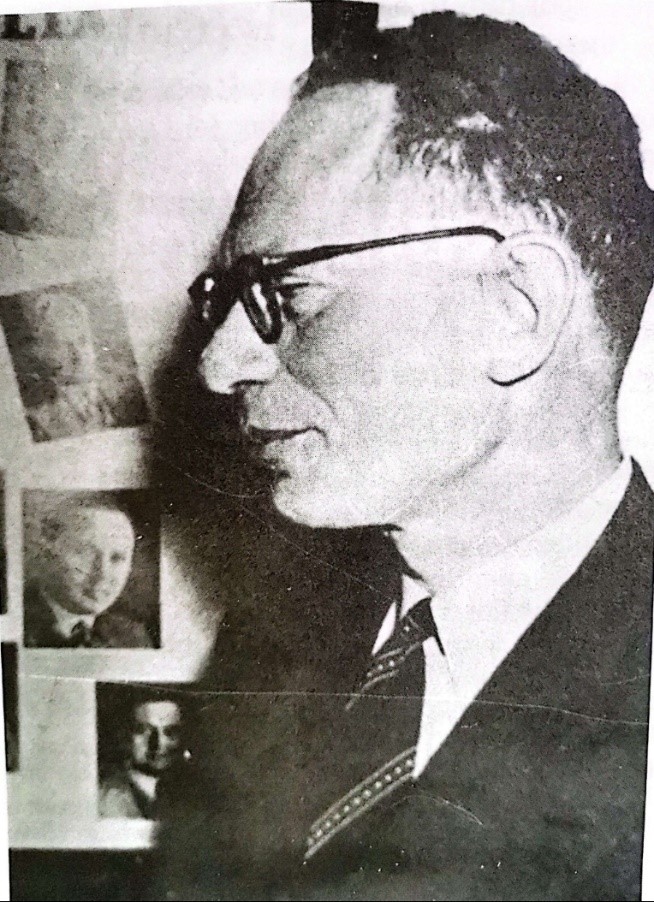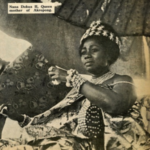SACHS, EMIL (SOLLY)
- 4 Min Read
Emil Solomon Sachs (died 1976) was the General Secretary of the South African Garment Workers’ Union, a non-racial organization, for 24 years, and a leader, in its later years, of the South African Labour Party.

PHOTO CAPTION: Emil Solomon Sachs. SOURCE: EA Library
Sachs’ most notable achievement was his leadership of the Garment Workers’ Union, which he largely built himself into a strong organization, almost wholly populated by women, that stood for the rights of all its members, white and black.
The union was well-known, during the period of Sachs’ leadership, for creating its own cadre of leaders, many of them young Afrikaner women, including Johanna and Hester Cornelius and Bettie du Toit. These young protegées came to be known as “rebel’s daughters.”
In 1938 the Union of South Africa celebrated the centenary of the Great Trek. Sachs asked that his union be allowed to participate in the occasion, but he was turned down probably because his union was multi-racial and also because he was a Jew.
Shortly after the snub by the centenary committee, Sachs was challenged by a Nationalist Party rival for the secretaryship of the union. When the challenge failed, the opposition turned to strong-arm tactics. They forcibly broke up union meetings, castigated Sachs in local publications and, in the Dutch Reformed Churches, incited white workers against non-European workers. Sachs won an important libel action against accusations that he was a Communist.
In fact, Sachs had been a member of the Communist Party of South Africa but he was expelled in 1931 for “drifting away from all party activities.” Since 1946 he had been a member of the South African Labour Party and became its national treasurer in 1952.
In 1948 Sachs found himself thrust into the center of the debate between the right-wing Nationalists and the centrist Union Party. The Nationalists had isolated two themes for their party’s platform: separate schools for Afrikaans speakers and the dangers of the Communist threat.
In nationalist eyes, Sachs and his multi-racial union epitomized the Communist threat. Unfortunately, Union Party leader General Smuts did not articulate a position on the Communist threat nor did he defend Sachs. Smuts believed the rhetoric would die down, because the government had just fought a war with Communist allies.
The Nationalists won the election and mounted a full scale campaign to discredit Sachs. The Garment Workers Union withstood the assault for four years, but in 1950, with passage of the Suppression of Communism Act, Sachs was forced to resign his position.
In addition to outlawing the Communist Party, the Suppression of Communism Act permitted any member of the Cabinet, simply by naming an officeholder of any organization, to make it unlawful for that person to hold office or take part in that body. A minister could also ban any publication and that publication would not have recourse to the courts.
In spite of the government campaign against him, 300 shop stewards unanimously reelected Sachs in 1951 as General Secretary of the union. The following year the Minister of Justice ordered Sachs to resign his office and prohibited him from attending any gathering except those of a religious, recreational or social nature.
Sachs disobeyed the ban and addressed a crowd of 10,000 supporters. He was arrested and placed on trial a month later. 18,000 garment workers went on strike to protest his arrest. When Sachs was released on bail he immediately addressed another crowd and was jailed again.
In July 1952 he was found guilty of attending prohibited meetings and was sentenced to six months hard labor. In January 1953 he left the country and went into self-imposed exile in Britain. He continued to write but his books were banned by the South African government. He died in exile in 1976.
VIRGINIA CURTIN KNIGHT



